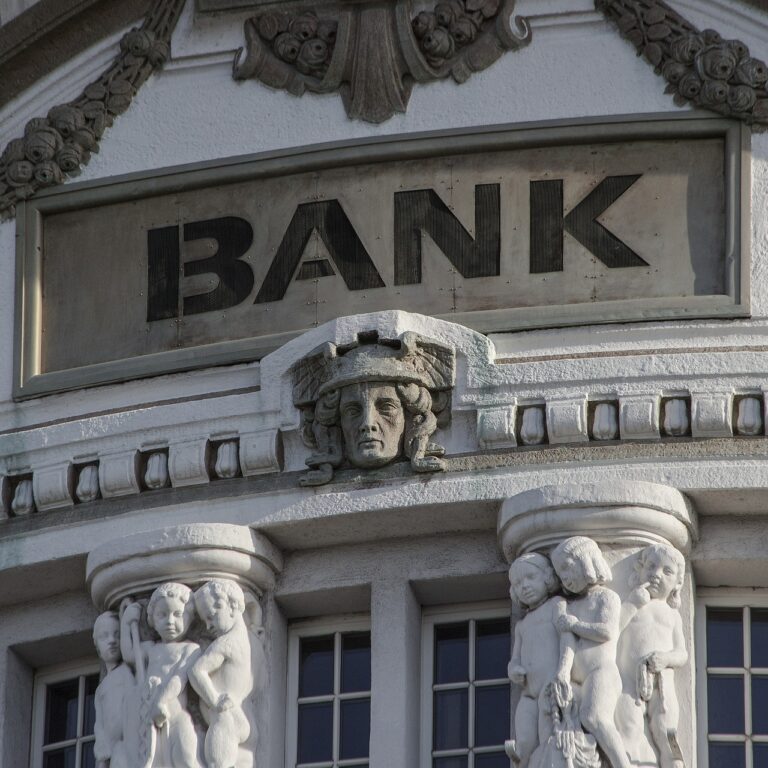The Importance of Building a Banking Relationship: Enhancing Your Financial Health

In today’s fast-paced, digital world, it can be easy to overlook the value of having a strong, personal relationship with your bank. However, building a solid banking relationship offers numerous benefits that can profoundly impact your financial health and open doors to a variety of opportunities. From gaining access to better financial products to receiving personalized advice, a robust banking relationship is an invaluable asset. Here’s an in-depth look at why fostering a good relationship with your bank is so important and how it can enhance your financial life.
Access to Better Financial Products
One of the most immediate benefits of a strong banking relationship is access to superior financial products and services:
- Preferred Rates: Customers with longstanding relationships may qualify for better interest rates on loans, mortgages, and savings accounts. Your bank might offer lower loan rates or higher savings interest rates as a reward for your loyalty.
- Exclusive Offers: Banks often provide exclusive products or promotional offers to their loyal customers, such as fee waivers, special credit card deals, or investment opportunities.
- Tailored Solutions: With a better understanding of your financial history and needs, bank representatives can recommend products that are tailored specifically to your circumstances, maximizing your financial benefits.
Building a trusting relationship with your bank enables you to take advantage of these enhanced financial services.
Personalized Financial Advice
Another key benefit is access to personalized financial advice:
- Customized Planning: Banking professionals can provide tailored financial advice and help you develop a customized financial plan based on your goals, whether it’s saving for retirement, buying a home, or starting a business.
- Proactive Guidance: A strong relationship encourages bank representatives to be proactive in guiding you through significant financial decisions, helping you avoid potential pitfalls and take advantage of opportunities.
- Educational Resources: Banks with which you have a good relationship are more likely to offer you educational resources, workshops, and seminars to boost your financial literacy and empower you to make informed decisions.
Personalized financial advice can help you better navigate the complexities of managing your finances and achieving your long-term goals.
Easier Access to Credit
Building a relationship with your bank can make it easier to secure credit when you need it:
- Loan Approvals: A strong banking relationship can streamline the loan approval process. Banks may be more willing to approve loan applications quickly if they know you and have a history of your financial reliability.
- Credit Limit Increases: Loyalty can also make it easier to request and receive credit limit increases on your credit cards, providing you with more financial flexibility.
- Specialized Lending Products: Banks may offer special lending products to valued customers, such as personal loans with favorable terms or lines of credit tailored to your needs.
Being a known, trusted customer can significantly enhance your credit options and make accessing funds simpler and faster.
Improved Customer Service
A strong banking relationship often translates to better customer service:
- Priority Assistance: Longstanding customers are more likely to receive priority assistance and personalized attention when dealing with banking issues or inquiries.
- Problem Resolution: Banks are more inclined to resolve disputes or problems favorably for customers they value, ensuring a smoother banking experience.
- Dedicated Account Managers: Some banks assign dedicated account managers to their loyal customers, offering consistent, reliable support from someone familiar with your financial situation.
Enhanced customer service improves your overall banking experience, making it more efficient and satisfactory.
Greater Trust and Confidence
Developing a solid relationship with your bank fosters trust and confidence, which is essential for any financial partnership:
- Transparency: A good relationship fosters transparency about fees, terms, and potential financial products, enabling you to make informed decisions.
- Security: Trusting your bank and its representatives provides peace of mind, knowing that your financial welfare is a priority.
- Collaborative Planning: Confidence in your banking relationship encourages open communication, allowing you to collaboratively plan for significant financial milestones or address challenges more effectively.
Trust and confidence in your bank ensure that your financial management is handled with care and integrity.
Timely Financial Alerts and Support
Your bank can provide timely alerts and support, aiding in effective financial management:
- Timely Alerts: A bank with which you have a good relationship will provide timely alerts for account activity, such as low balances, large transactions, or potential fraud, helping you stay on top of your financial status.
- Proactive Support: In times of financial difficulty, a strong banking relationship can mean quicker, more understanding support, whether it’s assistance with loan repayment plans or waiving certain fees temporarily.
- Early Notifications: Banks may also notify you early about changes to terms or new financial products, giving you the chance to adjust your financial plan proactively.
Timely alerts and proactive support help you manage your finances more effectively and confidently.
Flexibility in Financial Solutions
Having a strong relationship with your bank can provide you with more flexibility in financial solutions:
- Customized Solutions: Banks that know you well may offer more customized financial solutions, such as tailored loan repayment plans or flexible investment opportunities that align with your goals and circumstances.
- Negotiation Leverage: Being a valued customer gives you more leverage to negotiate better terms on loans, credit cards, and other financial products.
- Emergency Flexibility: In emergencies, your bank may be more flexible in meeting your needs, such as providing short-term loans or advancing funds to cover unexpected expenses.
Flexibility in financial solutions enables you to manage your finances more adaptively and efficiently.
Building Financial History
A strong banking relationship helps build a comprehensive financial history, which can be beneficial in various scenarios:
- Creditworthiness: A positive financial history with your bank demonstrates creditworthiness, making it easier to secure loans, mortgages, and other financial products in the future.
- Trust Track Record: A long-standing relationship with a good transaction history builds a track record of trust, encouraging your bank to offer better terms and services.
- Future Opportunities: A well-maintained relationship can open doors to future financial opportunities, such as investment management, business banking services, or premium accounts.
Building a solid financial history with your bank enhances your credibility and opens up more financial opportunities.
Leveraging Community and Networking Opportunities
Banks often play a significant role in the local community and can provide valuable networking opportunities:
- Community Involvement: By being involved with your bank, you may have the opportunity to participate in community events, workshops, and seminars, enhancing your financial literacy and networking.
- Business Contacts: For business owners, a good banking relationship can provide introductions to other local business owners and potential clients through networking events organized by the bank.
- Local Support: Banks with strong community ties are more likely to support local businesses and initiatives, providing both financial services and community engagement opportunities.
Leveraging these opportunities can lead to personal growth and new business ventures, enriching your financial and social life.
Peace of Mind
Ultimately, a solid banking relationship contributes to your overall peace of mind:
- Reliable Partnership: Knowing that you have a reliable banking partner who understands your financial needs and goals provides a sense of security.
- Proactive Management: Regular updates, advice, and tailored financial solutions from your bank ensure that your finances are being managed proactively.
- Support in Crisis: In times of financial crisis, having a trusted banking relationship means having immediate access to support and solutions, helping you navigate challenges more smoothly.
Peace of mind from knowing your finances are in good hands allows you to focus on achieving your long-term financial goals.
Conclusion
Building a strong banking relationship offers a multitude of benefits that can significantly enhance your financial health. From access to better financial products, personalized advice, and easier credit to improved customer service, greater trust, and timely support, the advantages are extensive. Flexibility in financial solutions, a solid financial history, community involvement, and overall peace of mind further underscore the importance of fostering a good relationship with your bank. Here’s to nurturing a strong banking relationship that supports and enriches your financial journey!Run
⌘
↵






